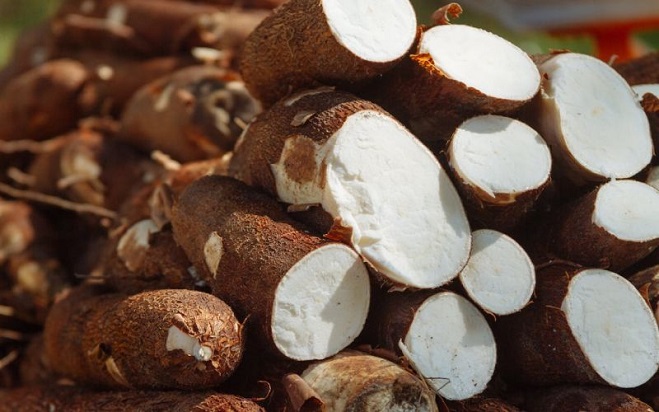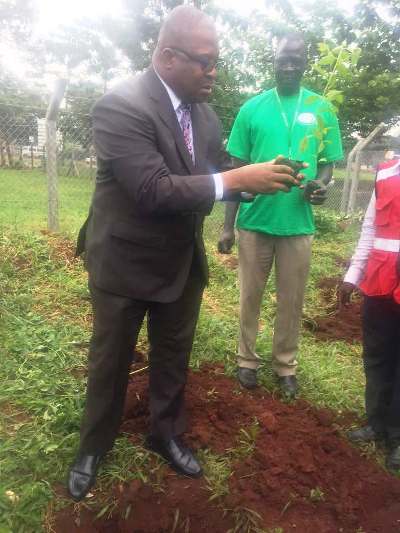Roots and tuber crops are increasingly becoming popular on breakfast tables as health-conscious urban households turn to these varieties as an alternative to wheat-based products such as bread, buns or chapati.
The crops, which include sweet and Irish potatoes, cassava and yams have also been touted as the best alternative for maize because of their ability to cut overreliance on the staple and boost food security in Kenya.
However, these crops have for long been neglected by farmers with only a handful growing them in small quantities despite surging demand from urban dwellers.
Canisius Kanangire, African Agricultural Technology Foundation (AATF) executive director says rapid urbanisation, increasing population and changing dietary habits of the growing urban populations are expected to drive high demand for root crops.
According to studies by the World Bank, by 2033 Kenya will reach a tipping point in terms of urbanisation as half of its population will move to urban areas and the country will have 37 cities with over 100,000 residents up from 21 urban centres currently.
In most of sub-Saharan Africa, root crops provide up to 20 per cent of dietary calorie needs for a large proportion of the rural population but this is changing as the focus now shifts to the city population.
In recent times, root crops have gained further attention for their potential to act as a buffer against the ravages of climate change on the food and nutrition security needs of many households as most of them have the ability to withstand extreme climatic conditions such as drought.
“Root crops represent an untapped potential in agro-processing and industry, especially in sub-Saharan Africa and we should no longer refer to them as orphan crops,” said Dr Kanangire.
This category of crops has earned the name ‘orphaned crops’ because they have been abandoned by farmers. Of all the tuber crops, only Irish potato is currently produced in large production.
Irish potato remains the second most consumed staple in the country after maize, however, Kenya still grapples with a shortage of certified seed impacting negatively on production.
Currently, the country is fighting food insecurity and has had to open a window to import 10 million bags of maize to plug the shortage.
Agriculture Cabinet Secretary Mithika Linturi says there is a need to strengthen the roots and tubers’ value chains in order to increase their competitiveness in the country’s agri-food systems.
“Production of main root crops such as cassava, sweet potato and yams among others remains below potential. The transition of the status of the crops that I referred to presents a challenge to policymakers, researchers, and other value chain actors,” said Mr Linturi.
Speaking during the 19th International Triennial Symposium of the International Society for Tropical Root Crops in Nairobi, Mr Linturi said to achieve this, the country needs to undertake several initiatives including supporting smallholder farmers in this sub-sector to commercialise production of the root and tuber crops.
“The Government of Kenya recognises the challenges in the subsector and has laid out a clear roadmap for sustainable growth and development of a vibrant root and tuber crops subsector as set out in our National Root and Tuber Crops Development Strategy 2019-2022,” he said.
The CS said addressing key pillars such as pests, disease and weed management, climate resilience, and sustainable seed systems is critical for the growth of this sub-sector.
He said strengthening market linkages, and exploring opportunities in agro-processing will go a long way in creating and sustaining viable business models for the roots and tuber value chains.
The National Root and Tuber Crops Strategy aims at advancing the development of the root and tuber crops in Kenya from an initial focus on high-yielding varieties and pests and diseases tolerance, to include a wider range of other intervention areas that are essential to the sub-sector.
The strategy also aims at ensuring well-functioning producer institutions and markets, availability of quality planting materials, establishing economic volumes, and exploring and expanding opportunities for processing to increase incomes across the value chain and especially producers’ incomes.
Director of crops at Kalro, Lusike Wasilwa said farmers should start planting certified seeds that are clean, to stop multiplying of diseases and pests on fields.
“When farmers grow clean seeds, it stops the multiplication of pathogens on the farms,” said Dr Lusike.
According to breeders, the hybrid variety has the potential to produce up to 180 bags of 50-kilogramme per acre as compared to the traditional type that produces an average of 40 bags.
The initiative also targets to increase potato consumption due to its high nutritional value.
Fast food franchises operating in Kenya have to rely on imports from as far as Egypt and South Africa for the potatoes they use as what is grown locally does not meet their required threshold.
Source: Business Daily Africa





